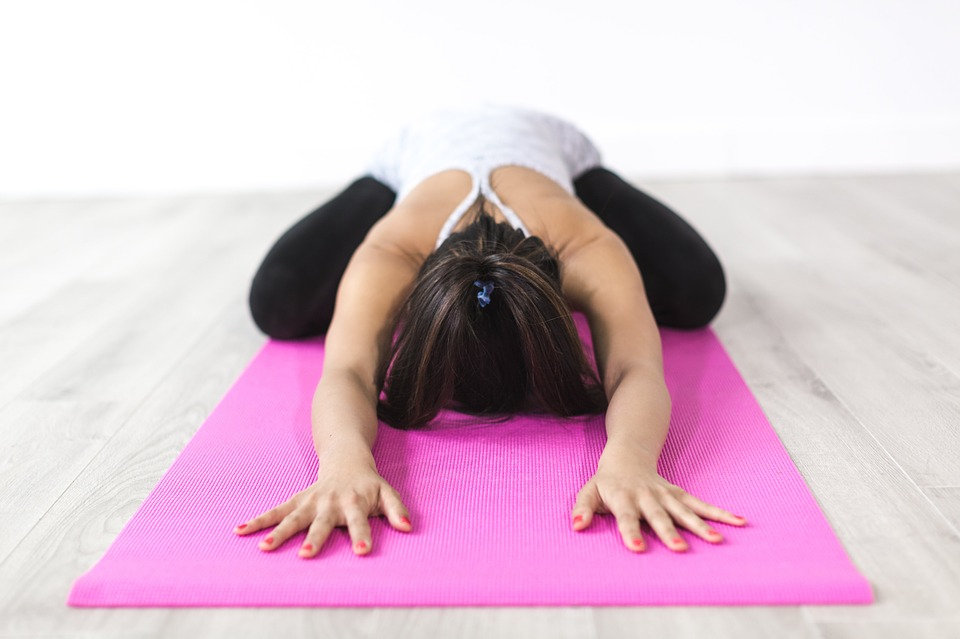BY: Caleb Anderson
Whenever someone is recovering from addiction, the primary goal is to avoid relapse. While this is no doubt a constant challenge, one way to help facilitate recovery is through physical fitness. No matter who you are or what you are going through, exercise benefits everyone and improves health overall.
With addiction recovery specifically, working out is significant for two reasons: It releases endorphins and reduces stress. Endorphins, which create a heightened sense of well-being, are especially helpful to an individual recovering from addiction because they work to replace the former high with a natural, healthy, drug-free kind of high. As a result, this counteracts depression that’s commonly associated with withdrawals during recovery, and provides a way to not only cope with the process but also a means to embrace the new lifestyle. During exercise, there’s also a chemical in the brain known as galanin, which reduces stress. By decreasing stress-related cravings, galanin complements the release of endorphins, providing a better chance to decrease or eliminate drug-seeking behaviors.
What are the best types of exercise?
For overall health, there are four important kinds of exercise: Aerobic, strength training, stretching and balance. Aerobic exercise (e.g. a walk or run) increases your endurance and is probably the most critical for someone in addiction recovery because of its mood-boosting abilities. It decreases the chance of depression, lowers blood pressure, and reduces the risk of heart disease and select cancers. Strength training (e.g. lifting weights), which aims to build muscle mass, makes you stronger overall and reduces stress. With stretching, you maintain your flexibility, and decrease the chance for pain and injury. Lastly, balance exercises are great for things that change with age, like vision. Tai chi or yoga are good options, or you can also try something at home like standing on one foot, keeping your eyes either open or closed and walking heel to toe.
What about mental health?
The best way to improve mental health is to take care of yourself. Here are some ideas to get you started:
- Exercise frequently.
- Eat nutritious foods and drink the recommended eight cups of water a day.
- Sleep for seven to nine hours every night. The goal is to feel rested.
- Value yourself.
- Avoid tobacco, alcohol and other drugs.
- Try meditation to quiet your mind and practice stress strategies. Alternative coping methods like meditation, yoga and swimming can help relieve stress and anxiety, as well as avoid relapse. Dog yoga, also known as doga, is another option, if you need a dedicated work-out companion. (Doga allows you to practice yoga alongside your furry friend.)
- Create a supportive network. It’s important to surround yourself with people who care about you.
How can a new, healthy habit become a lifestyle change?
To maintain an all-around healthy routine for the long-term, think about your goals. Sure, avoiding relapse is obvious to someone recovering from addiction, but it’s important to think beyond that. Perhaps you’ve always wanted to eat more fruit. This could be your goal, but it needs to be more specific. Do you want to eat more fruit each day or each week? The next step is commit to an action and strategize. If you’re goal is to eat three pieces of fruit per day, you have to decide when you will eat the fruit throughout the day and follow through with the plan. The key is to stick with your commitment for 10 weeks, which is around the time you no longer have to consciously think about the habit. Other ways to help your healthy habit stay for the long-term is to keep track of your progress and reward yourself (in a healthy way).
Addiction recovery is hard, but learning to be there for yourself and finding balance will help you discover the path that’s right for you on your journey to recovery.
Photo credit: Pixabay.com
Caleb Anderson developed an opiate addiction after being in a car accident. He’s in recovery today and wants to inspire others to overcome their addictions.
 Copyright secured by Digiprove © 2018 Linda Girgis, MD, FAAFP
Copyright secured by Digiprove © 2018 Linda Girgis, MD, FAAFP



Caleb,
Thank you for sharing such a personalized post. And, for being an example recovery and better health is possible!
Doga—I’ve learned a neat new term! (Yes, I am convinced our “furry friends” can be of great comfort and assistance in the entire path of recovery and healing.)
Linda, thank you for having him!